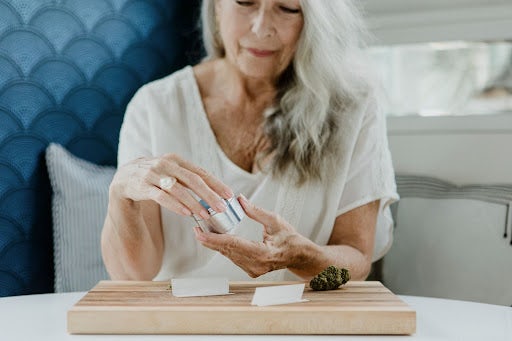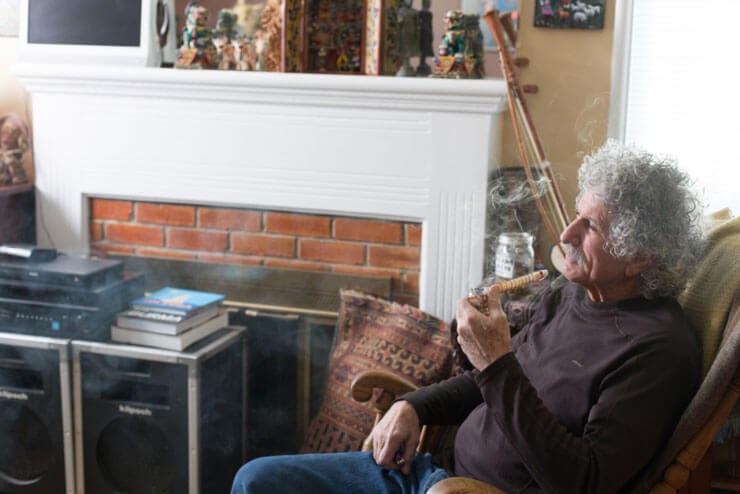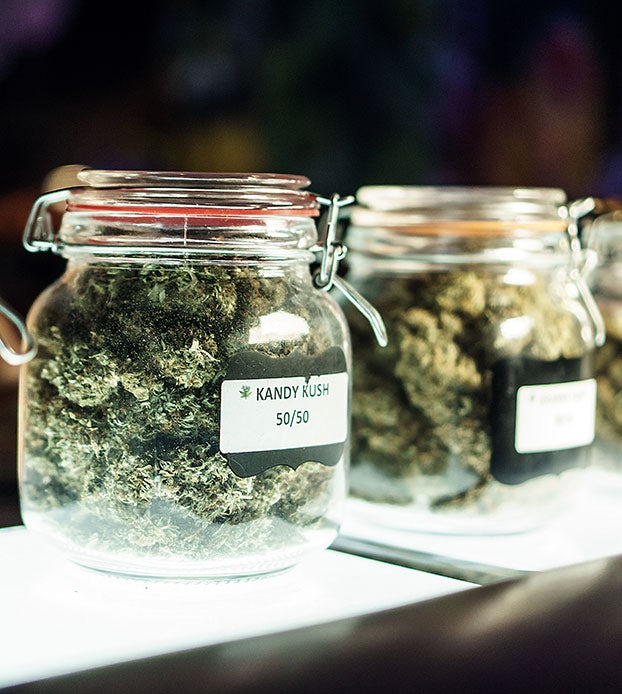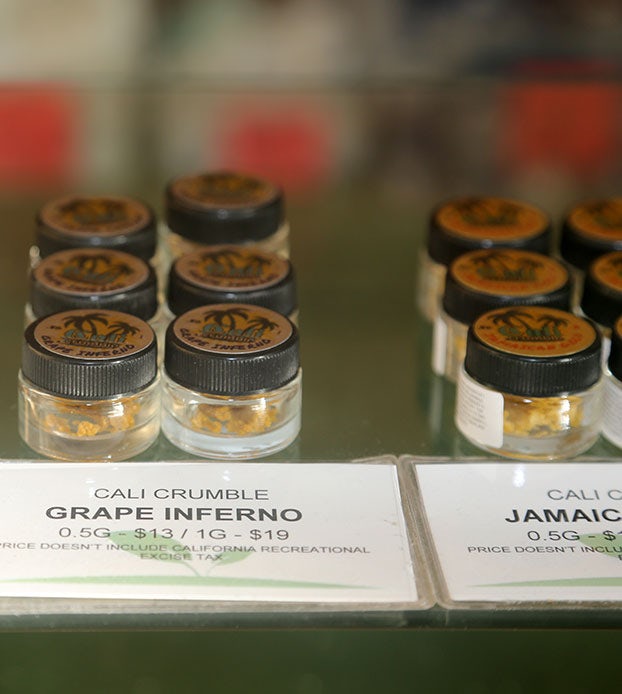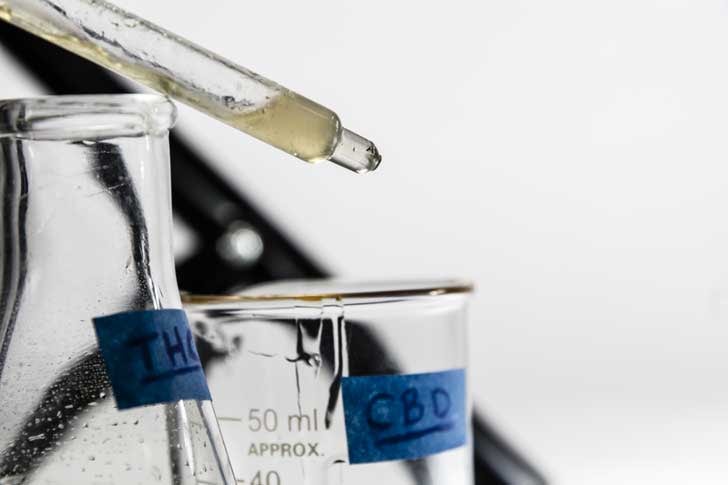When you think of cannabis, chances are you don’t picture your grandma or grandpa sitting on their plastic-wrapped couch passing a bong around, or bringing a batch of pot brownies to their bridge club.
The truth is, cannabis can have benefits for people of all ages, including your grandparents. And if recent polling is any indication, at least in states where it is now legal medically or recreationally, they’re probably already pretty curious if not lighting up with their friends.
➤ Email a “grandparent friendly” version of this article
There’s a good reason for that. Not only is a once-taboo and illegal substance now socially acceptable and legal, we also have a massive body of scientific evidence about its medical benefits. Many of those benefits are of particular interest for the maladies older folks tend to deal with.
So how should you talk to your grandparents about pot? A lot has changed in the past decade or so, but it may still be a bit awkward the first time you bring up marijuana. To make things easier, we put together some facts to help you make your case.
1. You don’t have to smoke anything
The iconic image of cannabis use is somebody smoking a joint, and it’s probably the one your grandparents are familiar with. And while they grew up in an era where cigarette smoking was far more common than today, if they’ve made it to their age without ever using cannabis, then smoking it may seem like a bit of a turn-off.
The good news is they never have any reason to smoke at all if they don’t want to. There are more than enough alternatives to smoking, and all of them can be highly effective ways to consume cannabis. You could recommend your grandparents start off with a low-grade edible, some gummies, or show them how to use a tincture. Just keep in mind that they’re new to this — so start low and go slow.
2. It can relieve pain
The leading reason patients receive medical marijuana in the United States is to treat chronic pain, and considering the unavoidable aches that accompany growing older, this could be music to your grandparents’ ears. Cannabis can be an effective treatment for many different types of pain, including neuropathic pain, arthritis, migraines, and fibromyalgia, among others. There is also a growing body of evidence that cannabis can help with inflammation.
A review of more than two dozen scientific studies found that “there was moderate-quality evidence to support the use of cannabinoids for the treatment of chronic pain,” while a 2016 study found that the use of medicinal cannabis “resulted in improved pain and functional outcomes, and a significant reduction in opioid use.”
We also have more evidence today that cannabis can be effective against pain when taken in small doses, so your grandparents don’t need to worry about getting high or disoriented to get some relief.
And the variety of delivery methods for cannabis means that it can even be applied locally as a topical solution to treat pain, or taken as ingestibles or inhaled.
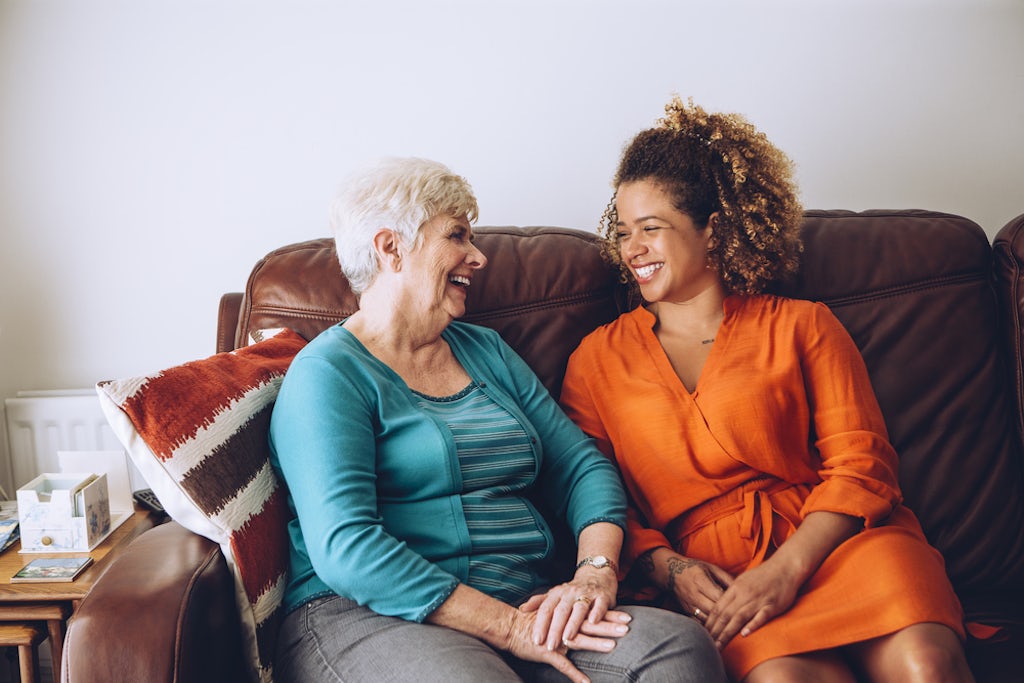
3. It’s unlikely to cause cognitive decline
Your grandparents have already reached their full physical and cognitive development, so there seems to be little risk that the occasional joint would cause any sort of mental decline. One study actually found that “strong evidence that medical marijuana treatment may normalize brain activity,” and a comprehensive review carried out in May of this year asserted that the limited evidence we do have on this suggests that “[cannabis] use in older ages may not be linked with poorer cognitive performance.”
Simply put, while there isn’t enough evidence to suggest that cannabis use poses zero cognitive risk for seniors — or that it could help improve their cognitive function — research has shown that the brain-addled pot smoker stereotype is just that, a stereotype that isn’t borne out by science.
And while there is a growing body of evidence that cannabis use during adolescence can lead to reduced cognitive function and IQ later in life, there is evidence that it has no such effect. Recent studies, including one that followed hundreds of pairs of twins for decades, found that there was no difference in cognitive functioning between those who used cannabis and those who did not.
4. You don’t have to get high
Your grandparents may be a bit turned off by the prospect of getting stoned and giddy, giggling at daytime TV as they are unable despite their best efforts to remember where they put their car keys or why they went to the kitchen. If they are already starting to experience more “senior moments,” then this trepidation is understandable.
The good news is that you don’t have to get stoned in order to enjoy the benefits of marijuana.
“Microdosing” cannabis is growing in popularity as of late, and it can be a great way to treat pain, nausea, and other ailments, without feeling intoxicated, or developing other side effects like anxiety. Microdosing entails just that — using a very small amount of cannabis — and it can be easily done through using small doses of a THC-dominant product, using a low-THC cultivar, or a wide variety of low- or no-THC products that are high in cannabidiol. Research has shown that it can be just as effective at treating pain.
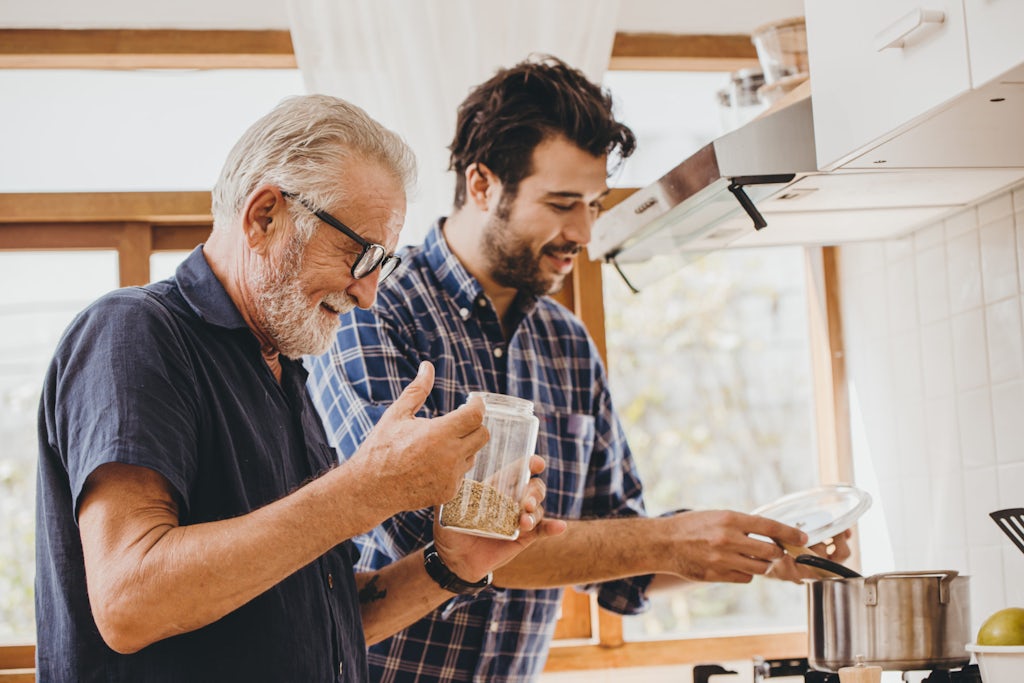
Cannabidiol, or CBD, is a cannabinoid that provides many of the health benefits of full-spectrum cannabis, without the psychotropic effect caused by THC. CBD can be taken in a variety of forms — from gummies to pills to topical solutions and tinctures. It can even reduce the psychotropic effects of THC and can be taken on its own to treat a variety of conditions including anxiety and depression.
It can also be used to relieve pain, inflammation, and ease nausea and vomiting, among other uses. The bottom line: CBD is a sound way to get medical benefits from cannabis without the “high” most people associate with the plant.
5. Cannabis can help you sleep better
Cannabis has grown in popularity in recent years as a sleep aid, and for good reason. A 2010 study found that cannabis use led to “significant improvements” in sleep. A study carried out in 2014 found that cannabis improved sleep for “a meaningful proportion” of those patients who had treatment-resistant sleep problems.
One thing to keep in mind about using cannabis for sleep though, is it can inhibit REM sleep, and a common experience many people have with cannabis is that they dream less, or remember their dreams significantly less than before. But while healthy REM sleep is important, what’s often more important is that patients are able to sleep at all. So if marijuana can help your grandparents get some shut eye, that can be a major improvement to their quality of life.
6. Cannabis is fun
Okay, we lied — there are six facts. This last one may be a bit subjective, but the fact is, cannabis is popular for another reason — it’s fun. This is mainly because of its ability to cause euphoria and laughter, make food more delicious, and movies funnier. For your grandparents, using cannabis as a couple can be a great way to get closer and have fun together, and can also help pass the time in and enjoy retirement.
Speaking to your grandparents about cannabis may be awkward and a bit strange, but there are more than enough reasons that you can give them for how marijuana can improve their lives, or at the very least, why they shouldn’t be scared of it. And besides, who loves you more than your grandparents? They’re bound to listen.
And they’re not alone in having “the talk.” The image of cannabis today may be more tied to the younger generation, but your grandparents’ generation is also increasingly open to taking part.
According to a recent survey, 80% of adults over the age of 55 said that while they have not used cannabis or cannabis-derived products in the past year, they would be interested in trying them.
The survey also found that the 55-64 age group believe more than any other age group that cannabis should be legalized. Another study from February found that marijuana legalization has contributed to a 75% increase in cannabis use among Americans over the age of 65.
That may be a bit younger than your grandparents, but the baby boomer generation that helped popularize cannabis use across the country is now in its 70s, and many of them are rediscovering marijuana.
In other words, while it might be a little awkward to recommend cannabis to your grandparents, you can definitely tell them that if they think they’ll be the only people in the retirement community using cannabis, at least in a legal state, they’ll probably be surprised. And if they’re interested, getting a card has never been easier.
Sign up for bi-weekly updates, packed full of cannabis education, recipes, and tips. Your inbox will love it.

 Shop
Shop Support
Support
